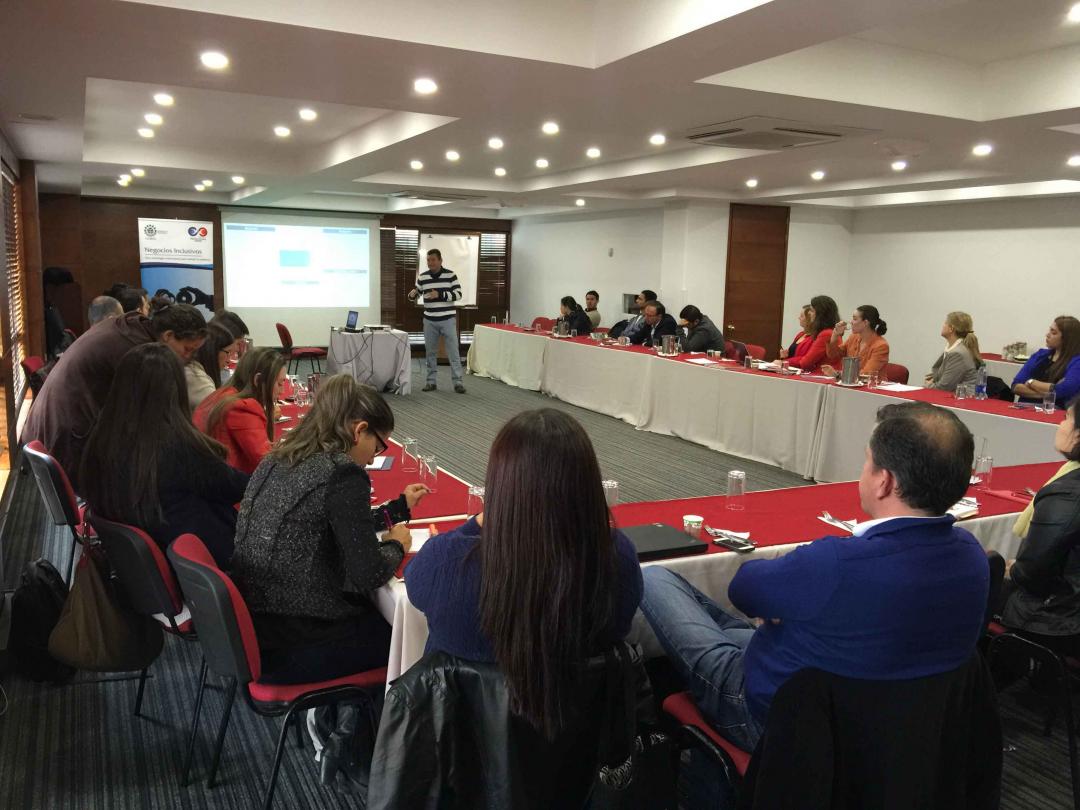Inclusive Business Strategy from private sector in Colombia: a private effort
In this previous post, I explored the role of the public sector in the promotion of inclusive business in Colombia. It’s true that the topic is present in the public agenda. However, it would be unfair to ignore the important role that the private sector has had in the exposure and implementation of the topic.
Colombia’s private sector has experience in the promotion of inclusive business, articulated through the National Inclusive Business Council (CONNIC) that drives CECODES (national chapter of World Business Council for Sustainable Development) which has the participation of the academy, business, consultants and public sector. CONNIC has conceived and developed the National Strategy on Inclusive Business around 8 objectives, addressing a variety of elements related to the promotion, identification and monitoring of inclusive business cases.
The objectives of CONNIC are:
- Promotion of inclusive business: CONNIC has made progress in the creation of introductory presentations and videos on the topic, as well as building a resource library and designing an inclusive business workshop aimed at raising sensitivity to the topic.
- Systematization of IB cases: CONNIC has created a case-systematization tool[1] that gathers information on a particular moment in the history of an IB case.
- Platform of projects that meet Inclusive Business criteria: This objective materialized with the launch of the website negociosinclusivoscolombia.org, which gathers information on the strategy, the resources developed and news related to the sector.
- Network of Resource Sources: This approach seeks to create a map of investors to make it easier to match the demand with the supply of capital. Results have not yet been generated.
- Regulatory framework and public policy: This objective seeks to identify the opportunities to encourage public policy on IB. It aims to consolidate the CONNIC as a space for strengthening and structuring networks. Results have not yet been generated.
- Understanding the needs of low-income communities, starting from their role as consumers: Seeks to understand the decision-making processes of low-income communities, ordering the variables of gender, age, geographical location, income and educational attainment. Results have not yet been generated.
- Strategic Alliances with a variety of actors: seeks to establish alliances with actors from a variety of sectors (public, private and academia) in order to continue promoting IB and to build closer relationships with sources of investment resources. So far, agreements have been established with organizations from the academia, the public sector and universities.
- Creation of Regional Committees: This has materialized in the creation of committees that have taken on the task of taking national strategy on the topic to a specific territory. So far, two Committees have been created, one for Montes de María, and the Committee for Antioquia.
As can be seen, progress has been made at different speeds on all the above objectives. One of the greatest challenges of the Committee is to achieve continuity in the processes of engagement with actors and ensure that leadership is shared.
In addition to the national strategy and the National Council, a few years ago CECODES started the project of “Inclusive Territorial Development”. CECODES defined this as “a business strategy that seeks to approach a territory in a way that is in harmony with the community and its environment, to be able to implement economic activity in a way that is sustainable. It is not based on paternalism towards the community, but rather on the development of business involving the community, the results of which are favorable for both the company(ies) and the community. This is developed based on the implementation of Inclusive Business supported by a strategy of broad, open communication with all economic, social and institutional actors within the territory or with an interest.” At the moment the concept is being tested in a single territory (Montes de María), where different groups of producers (producing mango, tobacco, teak, honey and sesame seeds) are working with 5 companies under the logic of inclusive business.
The overview of these experiences in Colombia shows at least two things. First, a private articulation around the promotion and implementation of inclusive business is possible. And second, it is necessary to have clear leadership to achieve it.
Note: The theme of this article was explored in a section of the report Inclusive Business in México and Colombia, published by GIZ, and written by Jenny Melo and Teresa Magdalena. (Available here in spanish)
[1] This tool can be found at (not lonber available)
This blog is a part of our July 2015 series on inclusive business in Latin America and the Caribbean. View the full series for more from practitioners, inclusive businesses and researchers in the region.
